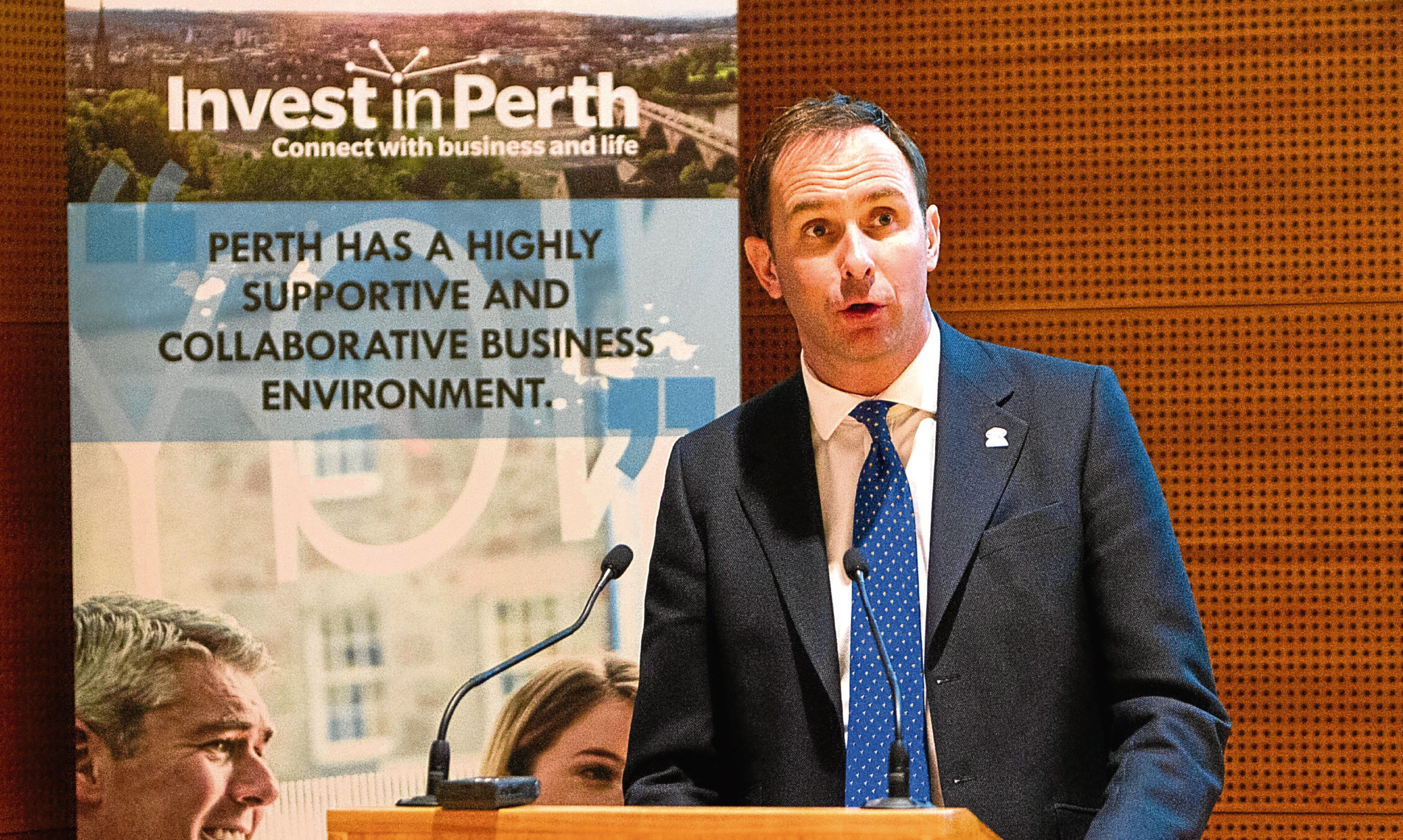Sir, – I was interested to read the letter from John Bullough, chairman of the Perth City Development Board, on the subject of Perth City Hall, in which he alleges that: “The other options for the building’s use” (apart from demolition and creation of a square) “were neither suitable or viable to create the destination Perth needed”.
How does Mr Bullough reconcile this statement with the fact that Groupe Geraud, the largest market operator in Europe, was prepared to lease the hall, pay a rent to the council and pay the entire cost of converting it into and operating it as a fresh food market, a type of enterprise which has proved to be enormously popular right across England and throughout the continent of Europe and beyond?
The firm’s offer was, of course, turned down by Perth and Kinross Council on totally spurious grounds.
A museum, which is what he and his acolytes now propose, unless it has really exceptional features (and there is no reason to suppose that it will have any such features) usually attracts people to visit it only once, if at all.
A market is a permanent attraction for both residents and visitors, bringing much-needed footfall to Perth city centre.
James Cormie.
4 Craiglea Road,
Perth.
Scots channel too parochial
Sir, – I think I will have to consult the dictionary for words to describe my disgust, shock and disbelief at the announcement by the BBC that we are going to have a dedicated Scottish BBC channel next year.
Who voted for this? Were we even given the option to have any say in the matter?
It is only recently the BBC were pleading poverty and contemplating cutting back on free licences for the elderly.
Has BBC Director General Tony Hall fallen foul of SNP pressure to further separate us from the rest of the UK with our viewing habits now?
Where will it all end?
It is important for our nation to be part of the UK news agenda.
Scottish news is already well covered on radio and television.
The news will become too local, too parochial and of interest to few. For example, who in Inverness would be interested in the winning pie maker in Galashiels?
Irene Thomson.
72 Glasgow Road,
Perth.
Importance of salmon farming
Sir, – While Arnot McWhinnie may have pleased the gathering with his speech at the presentation of the Redford Trophy (February 22) it is a shame that many of his assertions about the salmon farming industry were completely wrong.
For the record, Scotland has some of the highest fish health statuses of any salmon farming country in the world because of the stringent voluntary code of good practice and statutory regulation.
International companies invest in Scotland, bringing much-valued jobs, community support and economic benefits for many other businesses in rural areas because the reputation of salmon reared in Scotland is recognised and in demand in more than 60 countries.
It seems, according to Mr McWhinnie, that seals, dolphins and other predators only eat wild salmon on the east coast but stop short of doing the same on the west coast. Clever animals.
In fact, this is completely untrue and farmed salmon are just as tasty for seals on the west coast.
He may feel aggrieved that the Scottish Government is not supporting his sector as he would like, but that is entirely a matter for wild fisheries and government, not an opportunity to make ill-informed comments about salmon farming.
Salmon farming is an economic and social lifeline for many remote, rural communities, a sophisticated and modern food industry which takes its environmental responsibilities seriously and happens to be Scotland’s number one food export.
Scott Landsburgh.
Chief Executive,
Scottish Salmon Producers Organisation,
Durn,
Isla Road,
Perth.
Traffic peril for pedestrians
Sir, – I can only agree with your correspondent Mr A. Black regarding the lack of traffic law enforcement.
It now seems routine for drivers to ignore speed limits within Dundee. The problem is compounded by the fact that vehicles are now bigger and more intimidating to pedestrians. In many streets, vehicles are parked on pavements (illegally) so two-way traffic can get through.
The streets of Dundee were not designed originally for this type of vehicle.
However, the worst aspect is that the quality of driving is so poor. The most dangerous thing I observe is vehicles turning off a main road at junctions without slowing.
I recently used my Green Cross Code, looking both ways twice and began crossing a side road when a car turned in without slowing, doing about 40 to 50 mph. He tooted loudly as if I was the one at fault.
When I learned to drive many years ago, the pedestrian was paramount but nowadays aggressive, selfish driving has lowered the quality of life for many and especially the elderly in urban areas.
A solution to what will be an increasing problem is difficult because of political considerations, motorists being a powerful lobby.
Only deaths and accidents occurring might bring about change. I am not sure why there are no visible traffic police anymore or why zebra crossings cannot be more widespread.
This would be a low-cost option and go some way to help the beleaguered pedestrian.
Scot MacKenzie.
20 Abbotsford Street,
Dundee.
